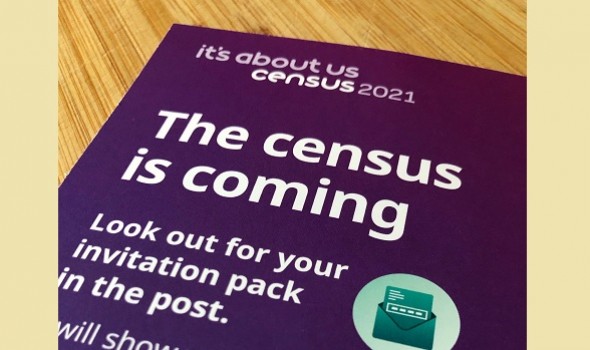Will the census help tackle inequalities for Roma communities?
Will the census help tackle inequalities for Roma communities?

This year’s census, which took place on Sunday 21 March and counted everyone living in England and Wales, included a new ethnic category: for the first time, people were able to select a ‘Roma’ option when describing their ethnicity. (This is in addition to the already existing ‘Gypsy/Irish Traveller’ category, introduced in the previous census ten years ago.)
When the news was announced, the move was widely welcomed by NGOs supporting the Roma, Gypsy and Traveller communities, which hoped that the inclusion of the new category would help tackle the inequalities some members of the Roma community still face: discrimination against Roma, Gypsy and Traveller communities is still widespread, recent headlines have reminded us.
According to the Census website, the information gathered by it will determine how authorities will plan their projects and funding in the next few years. Simply put, they need to know who they are working for, if they want to be effective. And if they don’t know you’re there, it becomes harder for them to help you.
A year after the start of the first lockdown, we all know the impact of the new pandemic on our lives. And while we all have had to adapt, the most vulnerable in the Roma community have faced serious challenges, says Mihai Bica, campaign worker for the Roma-led charity Roma Support Group. “The pandemic made existing problems worse,” he says. The charity aims to improve the quality of life of the Roma community in the UK and provide direct support to individuals, which has proven vital.
Following Brexit, Roma Support Group has been carrying out information campaigns and helping people apply to the EU Settlement Scheme, the process through which EU citizens can apply to remain in the UK after Brexit. The scheme has been largely criticised by migrant groups, and there have been widely-shared reports of people in several communities struggling with the application process.
“There were huge fears in the community because of Brexit,” says Bica, but the situation deteriorated with the pandemic. “The pandemic had the strongest impact on the people who needed the most help.”
Thousands of people successfully submitted applications to the Settlement Scheme with RSG’s help, Bica says. But, by the time the pandemic hit, “most of the people who hadn’t applied were the ones with the most complicated situations,” such as the homeless, children in care, or those with very limited English skills.
Moreover, the shift to online meetings caused by the pandemic has had a negative impact on some members of the community, says Bica. “The lack of face-to-face appointments meant that we found it harder to reach the most vulnerable,” who often lack access to devices, or do not have the skills to use them.
Nevertheless, since the start of the pandemic, RSG has done its best to step up its efforts to help the community, setting up new systems of support and focusing on providing assistance to immediate problems. Among other things, it produced explanatory videos on the pandemic, the lockdown, and the vaccines; it organised online tutoring classes for home-schooled children and it facilitated acquiring equipment for those who didn’t have the appropriate tools; it also provided support with Universal Credit applications. At the same time, crucially, it carried out campaigns with local authorities to inform them on how to provide better information and support to struggling members of the community.
What is missing, according to Bica, is adequate resources for community-based and -focused charities like his, and adequate guidance to local authorities – who sometimes do have the resources but do not know how to use them best. Decision-makers, Bica says, “need to involve more people from the community, to speak with them, and to test their initiatives” to see if they work.
This year’s census seems like the right opportunity for the Roma community to make their voices heard. “The funding is there,” says Bica. “But we do need more awareness and a better use of resources.”
Photo credit: UK Census 2021 by Brett Jordan / (CC BY 2.0)


